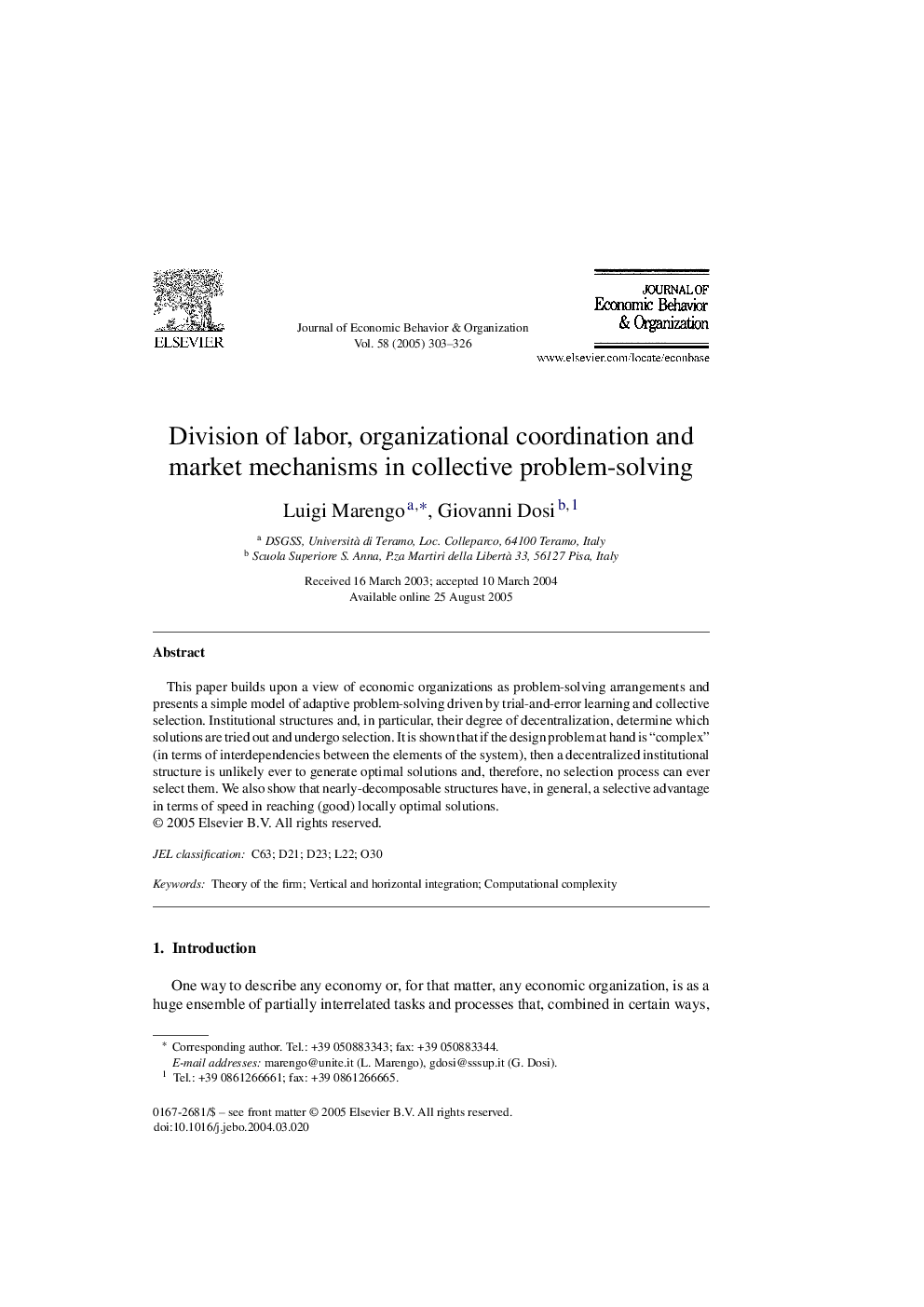| Article ID | Journal | Published Year | Pages | File Type |
|---|---|---|---|---|
| 10437726 | Journal of Economic Behavior & Organization | 2005 | 24 Pages |
Abstract
This paper builds upon a view of economic organizations as problem-solving arrangements and presents a simple model of adaptive problem-solving driven by trial-and-error learning and collective selection. Institutional structures and, in particular, their degree of decentralization, determine which solutions are tried out and undergo selection. It is shown that if the design problem at hand is “complex” (in terms of interdependencies between the elements of the system), then a decentralized institutional structure is unlikely ever to generate optimal solutions and, therefore, no selection process can ever select them. We also show that nearly-decomposable structures have, in general, a selective advantage in terms of speed in reaching (good) locally optimal solutions.
Related Topics
Social Sciences and Humanities
Economics, Econometrics and Finance
Economics and Econometrics
Authors
Luigi Marengo, Giovanni Dosi,
